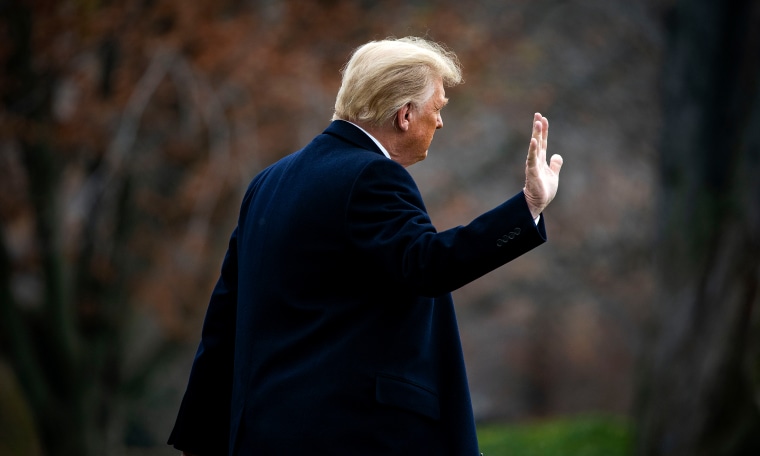The trouble started in earnest late last week with an unexpected letter. Donald Trump's lawyers sent cease-and-desist letters to the Republican Party's three most powerful campaign entities -- the Republican National Committee, the National Republican Congressional Committee, and the National Republican Senate Committee -- asking that they stop using the former president's name and likeness in fundraising appeals and merchandise.
Yesterday, the RNC effectively said it intends to ignore Team Trump's request. Politico reported:
The Republican National Committee is denying a cease-and-desist demand from Donald Trump's attorneys, who asked the party organization to stop using the former president's name and likeness in fundraising appeals. In a letter sent Monday afternoon to Trump attorney Alex Cannon, RNC chief counsel Justin Riemer asserted that the committee "has every right to refer to public figures as it engages in core, First Amendment-protected political speech, and it will continue to do so in pursuit of these common goals."
The same article went on to note that the RNC "has continued to invoke Trump in several fundraising appeals since it received the cease-and-desist request."
In other words, the Republican National Committee knows what the former president wants, and it doesn't care.
Last night, Trump upped the ante, issuing a statement that read in part, "No more money for RINOS [Republican in name only]. They do nothing but hurt the Republican Party and our great voting base — they will never lead us to Greatness."
The former president added that Republican donors, instead of sending contributions to his party, should instead direct money to his own political action committee by way of his own website.
There's no modern precedent for such an intra-party mess. It was just 10 days ago when Trump appeared at the Conservative Political Action Conference (CPAC) and boasted, "The Republican Party is united.... I think we have tremendous unity."
But if we watch what he does, and not what he says, his actions suggest unifying the party is not his principal goal.
There are legal experts who can speak to this with more authority than I can, but for what it's worth, it looks like the RNC has the law on its side. As we discussed yesterday, Trump is a prominent public figure, and political organizations almost certainly don't need his permission to use his name and likeness in their fundraising appeals. Republicans frequently use House Speaker Nancy Pelosi in their solicitations, too, and there's not a whole lot the California Democrat can do about it.
But just as important, if not more so, is the message Trump is sending to the party's rank-and-file supporters: to support the Republican Party's entities is to support weakness and failure.
Instead, the former president believes Republicans should simply give Trump the money. Give Trump the power. Give Trump the trust.
Let Trump decide which candidates get support. Let Trump decide which races are worthy of investment. Let Trump decide who should win and lose primaries.
It's not as if the former president has a track record of corruption and poor judgment, right?
Trump doesn't just intend to lead his party, he also intends to control it.

